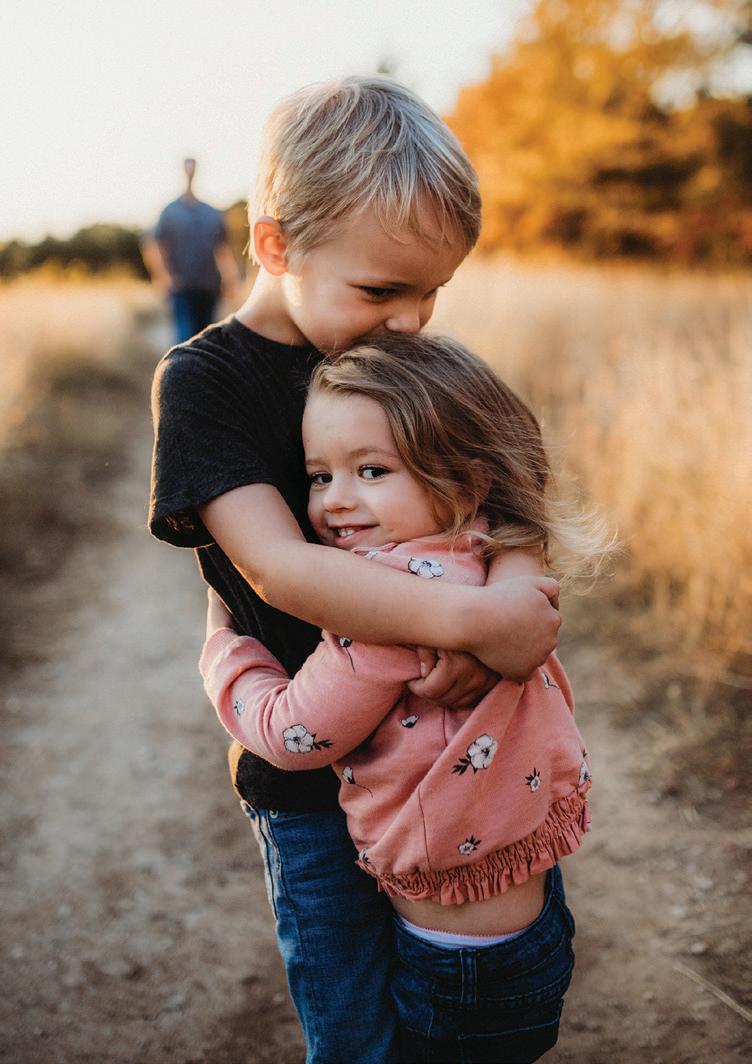
19 minute read
Ten Reasons Your Teen Should Be a Camp Counselor
Your Teen Should Be a Camp Counselor
By Janeen Lewis
Advertisement
Did your teenager love summer camp as a child? Does he or she need a job but can’t work during the school year because of homework and activities? Maybe you’re ready for your teen to get employment experience but still have some carefree time outdoors away from electronics. Day or sleepaway camp is the perfect place for teens to transition to the world of the employed. The paycheck is nice, but being a camp counselor has other rewards, too.
1The Gift of Responsibility
As much a teens sometimes protest about it, learning responsibility is the gateway to more independence as they grow into adults. Camp is an ideal place to build accountability because teens are in charge of other kids or activities, but they are still being supervised. If they work at a sleepaway camp, they must keep their cabin quarters neat and guide younger children to do the same. If they work at a day camp, they must show up on time, care for children and lead activities. Working at camp is fun, but it also gives teens a glimpse into the adult world with the guidance they still need.
2The Opportunity to Be a Role Model
Do you remember a teen you looked up to when you were a kid at summer camp? Maybe he or she helped you perfect your back stroke, taught you how to throw a curve ball or gave the perfect advice for dealing with disagreements between friends. Teens can connect to kids in ways that adults sometimes can’t, and when teens work at camp, they experience the fulfillment of helping younger kids meet their goals and develop new skills.
3Refined Relationship Skills
From fun-centered sports competitions between rival teams to
getting chores done for inspection, counselors and campers have to work together. Being able to do this teaches teens to hone their communication and interpersonal relationship skills. Some camps even offer staff communication trainings and morale building activities before camp starts to increase awareness and create discussion about how to get along with others.
4Improved Time Management Skills
Teen counselors have to be on time to meals, the morning meeting at the flag pole, and the activities they lead. They’re also responsible for gently prodding their campers to be punctual. If they are in charge of a lesson, craft or game, they must plan ahead and make sure they have all the supplies ready and set up on time. These time-management lessons will benefit them as they enter college and the work place.
5Time Away from Technology
Most day camps and sleep away camps either have a no device policy or have only short scheduled times with technology. Camp is the perfect place to do a “digital detox” and get back to nature, sports and face-to-face socialization.
6Preparation for
Being Away at College
If your teen works at a sleep away camp, he or she may get a taste of what college life is like. He or she will be responsible for meals, getting up on time or using a coin laundry. These are all valuable lessons that will prepare him or her for college. Also being away from home for an extended period of time for the first time can take some adjusting to and it can create some homesickness. Teen camp counselors have experienced these feelings and dealt with them before they go to college.
7A Chance to Share Talents and Skills

Is your teen an athlete? An artist? A nature enthusiast? Can he or she dance, write or program computers? Camp is an ideal place for teens to share strengths. I served as a camp counselor when I was in college, and it was the first time I realized I had a knack for teaching kids. It was the gateway to me becoming a teacher, even though I was a journalism student at the time. Camp introduces teens to opportunities that maybe they hadn’t considered. It builds confidence and opens doors to future careers.
8Saving on Summer Expenses
One of the advantages of working at an overnight camp is that in addition to a pay check, meals and lodging are usually provided by the camp. Staffers’ work and life all happen at the camp, so gas use is minimal. Teen counselors chaperone camp trips to amusement parks and museums which are usually covered by the camp. Granted, these covered expenses do require responsibility and work, and are not solely carefree outings, but they are positive perks for a summer job.
9Resume Building Working at camp is great experience to put on a resume when your teen is ready to enter the adult world of work. Camp experience is beneficial if your teen wants to teach or coach, but working at camp also builds communication, collaboration and problem-solving skills, all worthy resume additions that may catch a future employer’s interest. 10 A New Apprecia tion for You -
Being a teen counselor is indeed hard work. It involves stamina, patience and responsibility. Oh, and teen counselors must also teach, guide and care for children younger than themselves. It sounds a tiny bit like parenting, right? Teens who are camp counselors may begin to recognize how hard parenting is. With that recognition, they may have a new appreciation for all their parents do by the end of the summer.
Being a camp counselor is a great start for teens who want to join the world of work. If your teen is interested in beginning the adventure that comes with being a camp counselor, you can find more information at the American Camp Association website at https://www.acacamps.org/staff-professionals/ job-center r Janeen Lewis is a freelance writer with a degree in journalism and elementary education from Eastern Kentucky University. She also served as a camp counselor when she was in college.

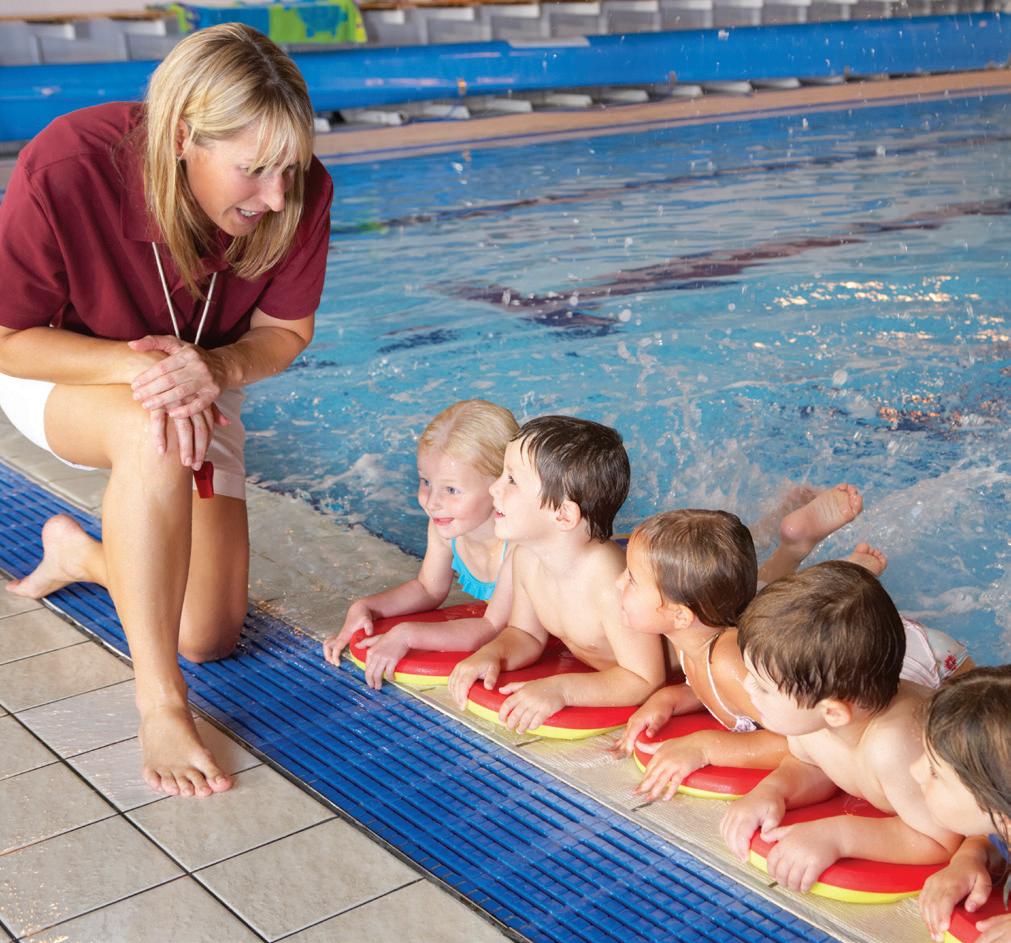
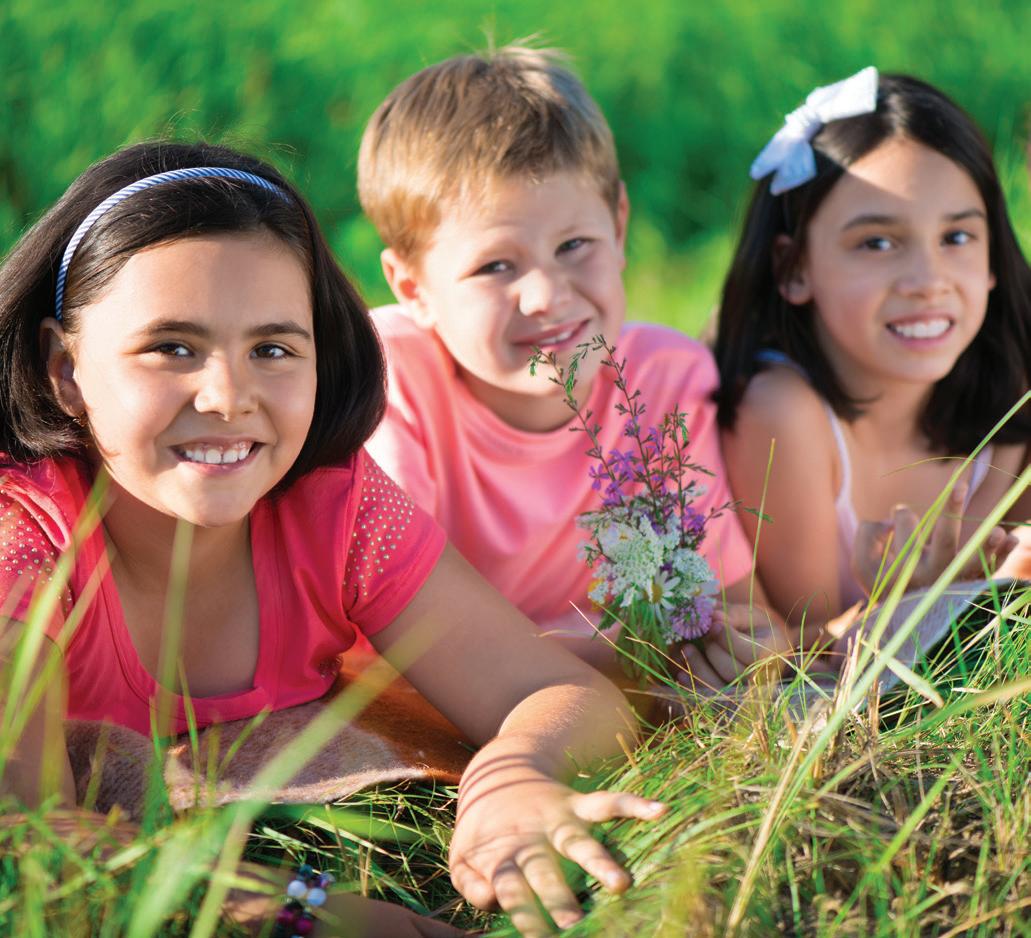
Summer Camp Listings
Your Child’s Best summer ever starts here
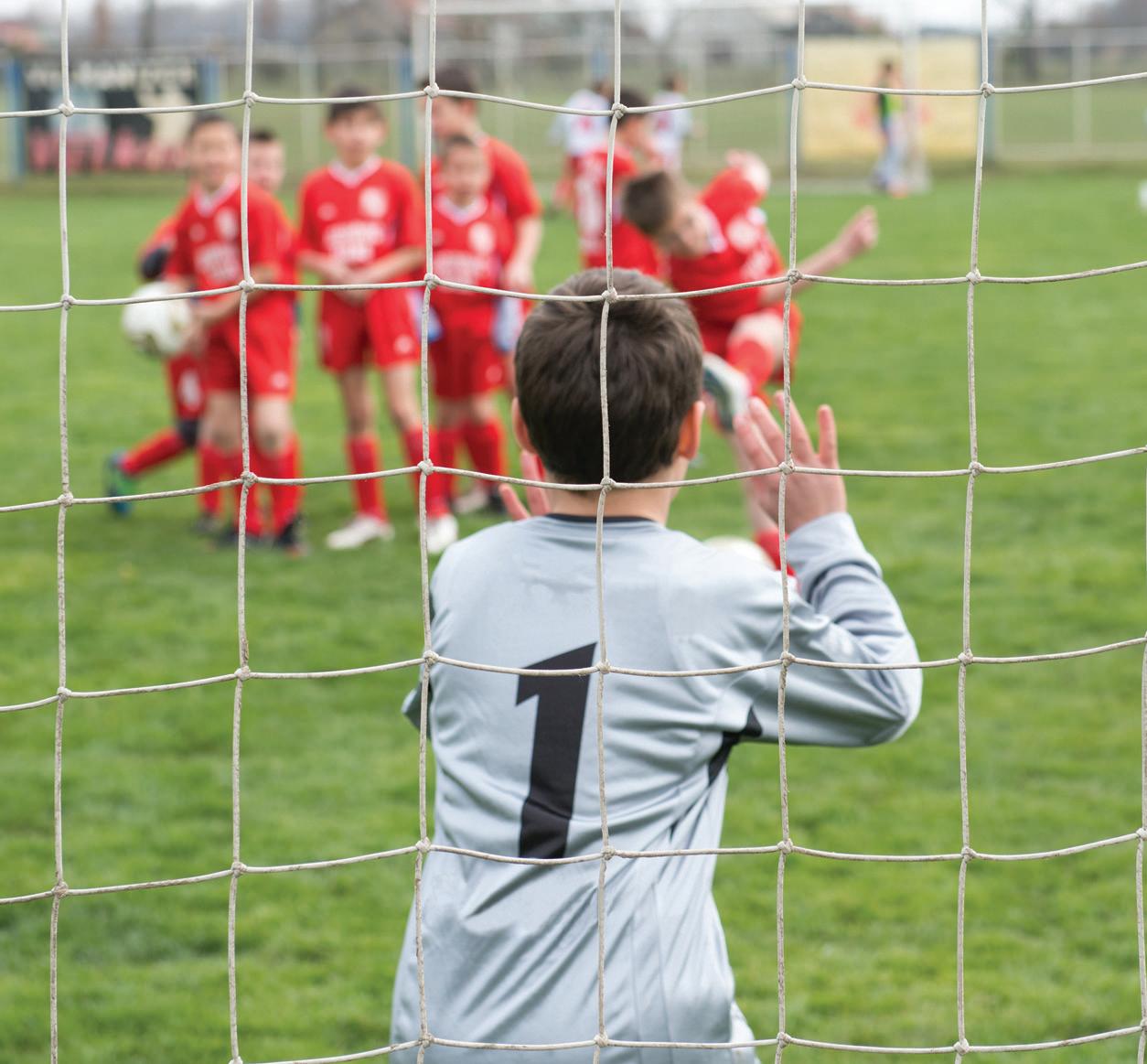

ALAMEDA BALLET ACADEMY’S SUMMER INTENSIVE AND THEME CAMPS! (ALAMEDA)
510-841-8913 Age or Grade Range: Minimum Age: 4 ABA’s Summer Intermediate Intensive Camp for Dancers 10+ Years and Ballet Theme Camps for Dancers 4-12 Years https://www.alamedaballet.com/
ATHENA CAMPS | GIRL-POWERED CAMPS (SAN JOSE)
408-490-4972 Age or Grade Range: Grades K-8 Athena Camps’ mission is to inspire courage and build confidence in girls through a unique combination of athletic, creative, emotional, and social activities in a nurturing community.
AUTHORS OF THE FUTURE! SUMMER WRITING CAMPS (PALO ALTO AND PLEASANTON)
925-485-5750 Age or Grade Range: Ages 7-13 Every summer, Emerson Montessori Schools of Pleasanton and Palo Alto open their doors and offer their innovative programs in a camplike setting to outside students who want to share in the summer learning adventures https://emersonmontessori.com/ programs/summer-writing-campwritenow/
BERKELEY CITY BALLET SUMMER DANCE CAMPS (BERKELEY)
510-531-8566 Age or Grade Range: Ages 5-8 Weekly Dance Camps from 9am-3pm culminating in performance! https://berkeleycityballet.org/ classes-and-more/classes/dancecamps
CAMP DOODLES (BERKELEY, ORINDA, MILL VALLEY AND SAN FRANCISCO)
415-388-4386 Age or Grade Range: Ages 3-15 Camp Doodles offers a projectbased, hands-on camp environment. Our philosophy emphasizes fun in maker and art labs designed to encourage creativity, coupled with ample outdoor time! http://www.campdoodles.com/
CAMP GRIGIO - SUMMER YOUTH PROGRAM (SAN FRANCISCO)
415-518-2400 Age or Grade Range: Ages 3-8 To ensure safety for staff members, campers, and their families, we will be following guidelines from both SF County and CA State Department of Health. Camp Grigio is currently offering three 3-week sessions. http://www.salesianclub.org/

CITY OF EL CERRITO SPORTS CAMP (EL CERRITO)
510-559-8208 Age or Grade Range: Ages 4-12 Non-competitive co-ed since 1993. Sports & Games Camp, Soccer Camp & Baseball Camp @ Cerrito Vista Pk. Swimming, play structure, Foosball. dodgeball. Frisbee, basketball, water balloons. 3 canopies w/ tables & chairs, chess & much more.. http://www.elcerritosportscamp. com/
CODEREV KIDS TECH CAMPS (CUPERTINO, MOUNTAIN VIEW & SAN FRANCISCO)
415-658-5915 Age or Grade Range: Ages 6-16 Check out the hottest tech camp for kids, now with 2 amazing locations in San Francisco (Sunnyside & Outer Sunset), one in the heart of Mountain View, and one in Cupertino. http://coderevkids.com/camps
EDEN VILLAGE WEST (HEALDSBURG, CA)
(510) 560-5610 Age or Grade Range: Ages 8-16 Eden Village West is the Jewish organic farm camp situated along the Russian River in Sonoma, CA. https://www.edenvillagewest.org/
FAD PAD (OAKLAND)
(510) 219-3474 Age or Grade Range: Ages 5-12 The FAD PAD is a magical outdoor camp offering a wide variety of FUN! Art, Cooking, Gardening, Fairy Lore, Drama, Cooperative Games, Hand Sewing and Starwitz. http://www.mehstories.com/
ID TECH THE #1 STEM CAMP (CAMPBELL)
408-871-3700 Age or Grade Range: Ages 7-19 iD Tech is the world leader in STEM education, with 400,000 alumni and 20+ years of experience. Summer programs for ages 7-19 are held at 150 prestigious campuses including Stanford, NYU, HKU, and UCLA
INTEGEM AUGMENTED REALITY CODING & ART CAMP (MULTIPLE CITIES)
(408) 459-0657 Age or Grade Range: Ages 5-18 Fun and Educational Camp! K-12 students learn Augmented Reality coding, digital art, game design, animation, 3D, storytelling, STEM/ STEAM, design thinking and more. Beginner to Advanced levels with personalized curriculum. https://camp.integem.com/
KIDZTOPROS SUMMER CAMPS (MULTIPLE CITIES)
(510) 356-8726 Age or Grade Range: Ages 4-14 Explore, learn and thrive at KidzToPros STEM, Arts & Sports Summer Camps for kids ages 4 to 14! From coding and robotics to digital arts, film studio, basketball, tennis and more, KidzToPros will

help ignite your child’s creativity and passions. https://www.kidztopros.com/ summer-camps
LEGARZA SPORTS (MULTIPLE CITIES)
(415) 334-3333 Age or Grade Range: Grades PK-8 Basketball, All-Sports, & Volleyball Summer Camp PreK-8th Grade. http://www.legarzasports.org/
SCHOOL OF ROCK PERFORMANCE AND RECORDING CAMPS (SAN RAMON AND VIRTUAL)
(925) 415-3340 Age or Grade Range: Ages 8-16 Do you want to learn how to play in a band or learn to write songs? School of Rock San Ramon offers a wide variety of music camps and workshops that cover topics such as these. http://sanramon.schoolofrock.com/
UC BERKELEY’S EMBARC SUMMER DESIGN ACADEMY (BERKELEY)
Age or Grade Range: Ages 15-18 embARC is an immersive summer design program at UC Berkeley’s College of Environmental Design that brings together high school students from diverse backgrounds in a virtual space to explore architecture, urban design and sustainable city planning. http://bit.ly/embarcwebsite_2021
THE RENAISSANCE INTERNATIONAL SCHOOL (OAKLAND)
510-531-8566 Age or Grade Range: Grades 1-8 This summer we offer Montessori classroom activities in the morning, followed by summer camp in the afternoon for Lower Elementary (first through third grade) students, and an all day summer experience for Upper Elementary and Junior High students (fourth through ninth grade). https://www.therenaissanceschool. org
SPANISH IMMERSION CAMPS WITH VIVA EL ESPAÑOL (MULTIPLE LOCATIONS)
925-962-9177 Age or Grade Range: Ages 3-10 Viva el Español offers engaging, interactive Spanish language camps for pre-school to elementary school-aged kids. Our camps are designed to give children a unique opportunity to learn, practice, and improve their Spanish language skills. http://www.vivaelespanol.org/
WALNUT CREEK ARTS & REC SUMMER DAY CAMPS (WALNUT CREEK)
(925) 295-1490 Age or Grade Range: Ages 3-14 Join Walnut Creek’s Arts & Recreation for summer camps this year! Arts & Rec offers summer camps in arts, sports, outdoor recreation, preschool camps, specialized recreation, and much more! http://walnut-creek.org/ summercamp
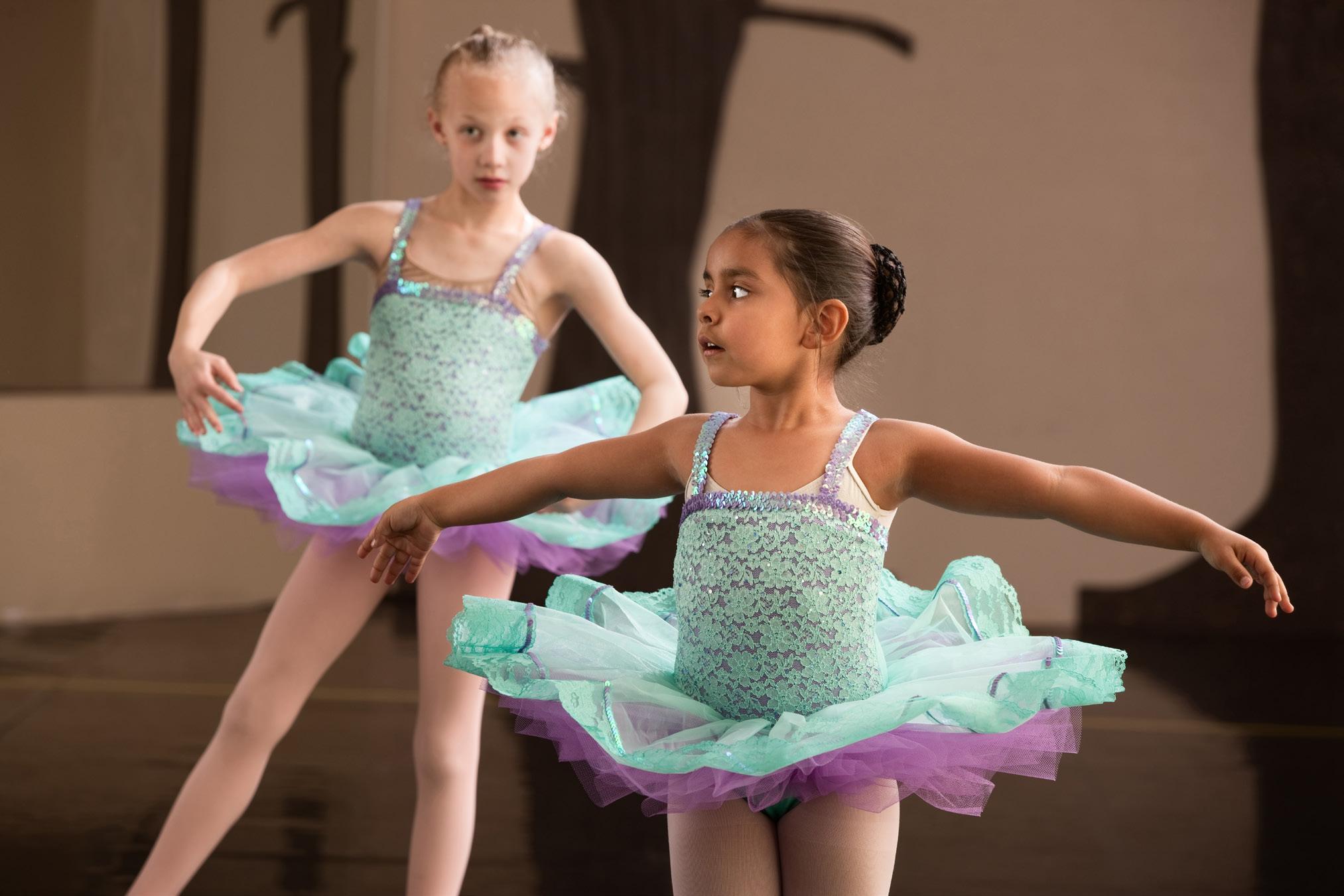
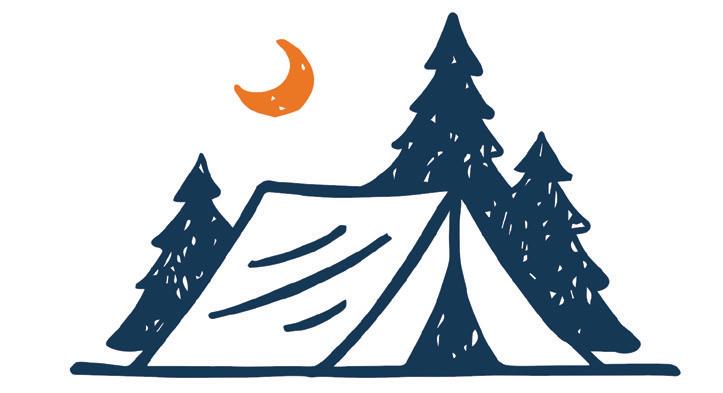
It is a universal thing, this overall boost in
confidence and greater sense of self that children gain from being away from home. How does such individual growth happen in such a group-focused environment? And how does living, working and playing so closely with other campers in groups benefit children as individuals? The answer in short: Camps excel at providing optimal environments; everything about camp from the staff who are hired to teach children to the activities available to the physical environment sets the stage for children to grow and develop.
SUMMER CAMP WORLDS ARE DEDICATED EXCLUSIVELY
TO CHILD DEVELOPMENT. In fact, it’s so exciting and inspirational to help children learn in the unique setting of summer camp, many educators dedicate their careers to teaching there because of its experiential education focus and natural setting. [ Still undecided on whether to send your child off to sleepaway camp? Take a look at the benefits of residential camps below: ]
Separation from their children changes the perspective of parents/guardians.
Going off to an overnight camp is often the first long-term independent experience outside the family for a child, even if it’s for a short session of a week or two and the child is accompanied by a friend. It’s that separation that influences the child to grow up in several important ways and provides the family with the chance to notice and appreciate that growth. Children grow and change daily; when you don’t see them for multiple weeks, change is easier to see and appreciate. While they may look taller or larger, physically, most campers also look fitter from all the walking and exercise, not to mention the fresh air and sunshine. Physical growth is just one way that overnight camp can change a child. Social/emotional growth happens, too, and it’s just as apparent.
Camp staff and professionals expect children to strive and achieve when skill building.
Campers rise to those expectations, generally speaking, and give their best. It’s the pervasive growth mindset of the camp culture that creates an environment that is so conducive to learning. The power of strong role models. Watching the adults in the community as they constantly learn inspires campers to want to keep improving and learning, too. Learning happens everywhere at camp! And, there is no shortage of people to cheer your child on as they advance program skills and social/emotional competencies. Resolving a conflict and showing leadership on a project are celebrated as much as learning to water ski or swimming across the lake.
Camp staff expect children to do as much as possible for themselves.
Camp environments and programs are engineered for optimal child development through life-skill building. Systems and practices for living in the cabins, bunks, tents or other dwellings help children to be independent. The counseling staff backs them up, but this happens differently than at home. Whether it’s gathering the necessary equipment for an activity (swimsuit, beach towels and sunscreen) or keeping things organized in the cabin, counselors do less for children than parents tend to do. There are reminders and help when needed, but counselors don’t do for children what they can (and should) do for themselves.
Other campers can be a big inspiration and influence.
Living so closely with other children has some great advantages. Your child might see a cabin mate who is doing independently what you’ve been doing for him/her or nagging your child to do – like hanging up a wet towel on the clothesline or folding sweatshirts on a shelf. At camp, people of all ages can be leaders, children included. Role-modeling is a powerful way of leading and other campers will inspire yours.
There is a context for doing chores and taking care of tasks that children often rely on adults to do at home.
For instance, if a group is planning to go on an overnight camping trip, there’s a lot of work to do. Even though the project is childsized, adults are supervising and supporting it. Once children understand what tasks are individual (like packing their own gear) and which are group tasks (like planning, shopping for and packing meals and equipment), they can understand how both individual and group tasks fit together. While on the trip, campers discover how they can contribute to the group. Maybe they’re cooking or cleaning up. Perhaps they are tasked with running the talent show or the story slam during the night’s campfire. Parents can be shocked to learn the complexity of tasks and challenges children are encouraged to undertake at camp. Campers are willing to work hard for group and individual goals that they buy into. The chores and jobs they are asked to do at camp are not random. Rather, they are connected to the activity, adventure or experience and campers can see why they must be done.
Time, space and safety to try out new skills and behaviors.
The stakes can be high at home and time can be limited for trying new things. Camps specialize in providing appropriate challenges for campers and a safe culture where campers take risks. With the backup of the staff and the support of other campers, it’s amazing how campers will push themselves out of their comfort zone to take a risk – physical or emotional. Not only can they go down the zip line or challenge themselves physically with the support of their camp “family,” a camper can also try other new things, from public speaking to speaking up for themselves during a conflict or disagreement with a peer.
Children make more choices and decisions at camp than they are used to making at home.
Campers have the chance to make small and large decisions as appropriate. Some of these decisions are individual while others are group decisions, like what dinner to cook over the fire on that campout, what to wear, whether to try out for the play, reach out to a new friend or go to an activity with a friend or independently. Deciding alone, with others and with adult guidance helps build solid decision-making skills that come in handy at school and college, around the neighborhood and in the future.
Success! Pure and simple, succeeding at challenging tasks, multi-step processes and group challenges is thrilling.
Camp invites children to approach challenges with grit and it rewards them mightily when they master something. Imagine hundreds of people clapping and whistling for the canoers who have just returned from white water rafting on the Allagash River or at the end of a carefully rehearsed play or musical! In both tiny and enormous ways, camps provide the experiences that boost children’s competence. “I did it!” moments abound here. Skill mastery and competence builds confidence.
Campers benefit from coaching, receiving authentic, honest feedback and from the power of the debrief (processing and evaluating how the group has performed).
Camps excel at getting groups to work together. It requires trained facilitators who can help discover, process, discuss and understand why a group succeeded at an initiative or task and/or why they may have failed. Debriefs happen formally on ropes courses, but they happen informally through the course of the camp day in many areas of programming and cabin living. Debriefing delivers the chance to ponder unique ways that campers fit and contribute to the group and their success. It highlights campers’ unique attributes. Because of debriefing, campers often leave with specific knowledge of what they bring/offer to a group and they can use this knowledge with family or school groups.
Group experiences at camp give children key information about themselves within the context of a group.
Immersion in the unique group experience of camp builds selfesteem, enhances self-discipline, increases self-advocacy skills and helps children work toward self-efficacy, which is critically important to a successful adulthood. Consider sending your child to overnight camp for a life-changing group experience that will contribute mightily to an emerging sense of self. r
By Bud Copeland
Tips to Prepare
Whether your family has a long tradition of summer camp or this is the first camper from your clan, once you’ve made the decision to send your child to camp, the real work begins. Directors in our membership have shared thoughts on first-time, overnight campers, and below are 6 tips for preparing those campers.
TRY SLEEPOVERS. Some first-time campers have never slept away from home before. While camp is a great place for young people to adjust to being away from home and family, it’s not the best place to begin the experiment. Slumber parties, going to a relative’s house for the weekend, or spending the night at a friend’s house, are all good practice for dealing with that unfamiliar feeling prior to night one at camp.
COMMUNICATION IS KEY.
Camps have policies and procedures for communication during the summer. Some camps allow phone calls, some print e-mails for the campers, and almost all still encourage snail mail. Learn camp’s policies regarding camper communication and review them with your camper. Set realistic expectations for if, when, and how they can share the fun their having at camp. Also, prewrite a few letters and send them ahead of time for your camper. Hearing their name at mail call is one of camp’s thrills!
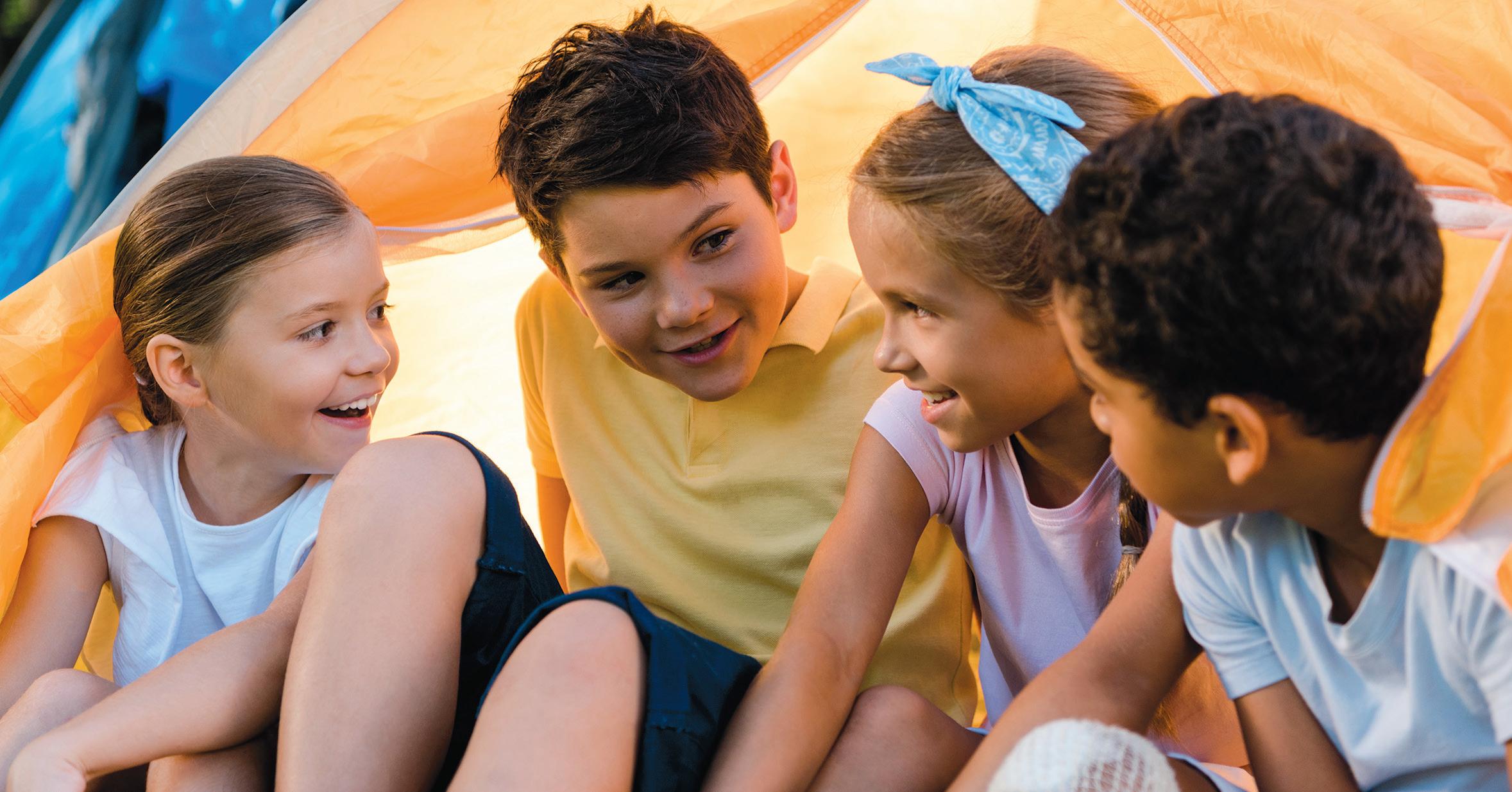
INVOLVE THE CAMPER IN THE
PROCESS. From the first conversation about camp, it is a family affair. Including the camper in these preparations and decisions lays the foundation for a positive camp experience. Finding camps, taking tours, talking to directors, planning communication, packing, etc. and anything the family can involve the camper with, they should. The more a camper feels ownership over this experience, the better. “Buying in” isn’t always the easiest for first-timers, so start early, keep them involved and informed, and empower them throughout the process.
SET AND MANAGE EXPECTATIONS.
It’s easy to tell campers everything is going to be fine, and they are going to love camp. Odds are, you’re telling the truth. However, experience teaches us that love for camp often comes over time. Campers may experience homesickness, anxiety, or other unfamiliar feelings for the first time at camp. It’s important to talk about these feelings, communicate how normal they are, and brainstorm strategies to cope and continue having fun.
BE HONEST WITH CAMP. Prior to
camp, parents should communicate any and all pertinent information that could influence their child’s summer. Whether it’s family dynamics at home, new developments at school, or recent health changes, sharing this information openly and honestly with your camp sets up all parties for success. Things such as bedwetting, new medications, or having a camper whose sister who’s going away to college after the summer, can all be useful in helping camps prepare for your child.
GO DO SOMETHING
(THE PARENTS).You’ve done due diligence finding a camp. You’ve packed, practiced and rehearsed arrival day, and the time has come to drop off your camper. Once at camp, don’t stick around too long. When you depart, the magic of camp truly begins. Take this time and enjoy it. That could mean reading a book you’ve been putting off, getting together with other parents who are summer empty-nesters, or doing any number of things that the joy of parenting forces you to delay. Remember that your child is off making new friends and facing new challenges in a safe environment. It’s time to step back and both have some fun. r Provided by the American Camp Association. Visit acacamps.org

